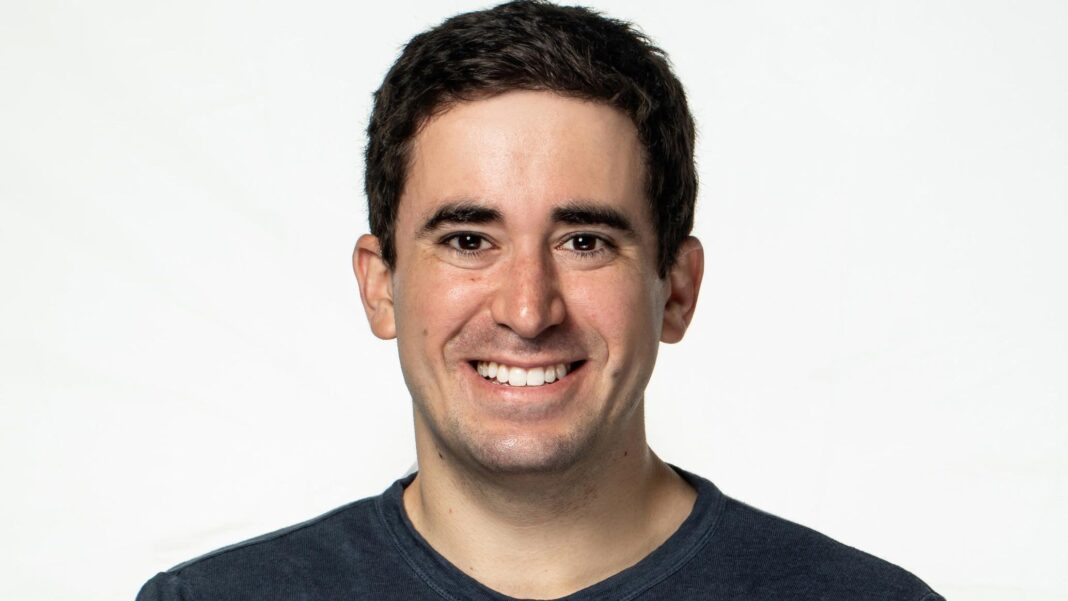Enterprise Tech Neobank Startup Yotta Brings Innovation To Americans’ Financial Lives Through Lottery-Style Savings Frederick Daso Senior Contributor Opinions expressed by Forbes Contributors are their own. I write about college students and recent graduates founding startups. Jun 9, 2022, 12:57pm EDT | Share to Facebook Share to Twitter Share to Linkedin Americans at nearly every rung of the economic latter struggle to save money, leaving many living paycheck to paycheck.
Yotta , co-founded by Adam Moelis and Ben Doyle, helps people win prizes by saving money “up to $10 million through weekly random number drawings. ” Moelis explains his novel perspective on how his startup can leverage the psychological habits behind playing the lottery to drive financial inclusion through technology. Yotta co-founder and CEO Adam Moelis.
Adam Moelis Frederick Daso : Before one can talk about financial inclusion, there must be a discussion on financial exclusion. How many Americans go without traditional financial services that the rest of us take for granted, and what is the consequence on their economic life? Adam Moelis : Around 5-6% of households are unbanked in the US, meaning they do not have a checking or savings account. Another 17% are underbanked, meaning they have a checking or savings account but rely on payday loans, check cashing services, and other alternative financial products.
The major issue with relying on alternative financial products is they come with exorbitant fees and interest rates. It’s estimated that unbanked and underbanked Americans spend over $180B per year in fees in interest or around $3k per year per person. This is a huge amount to be paying in fees.
On top of that, many of these people will have trouble getting access to credit because they don’t build a credit history. Daso : Since you grew up in a family steeped in the financial industry, topics around money and the economy came to you easier than others who may not have had access to a similar environment. How do you ground yourself in your financially excluded customers’ shoes to make Yotta an inclusive FinTech product for them? MORE FOR YOU The 5 Biggest Technology Trends In 2022 ‘Enthusiastic Entrepreneurs’: Pre-IPO Statements On Profitability Prove To Be Larger Than Real Life The 7 Biggest Artificial Intelligence (AI) Trends In 2022 Moelis : We talk to our customers regularly.
This is the best way to stay close to the problems they face and how we can serve them most effectively. I’ve spent a lot of time studying personal finance more broadly, but nothing beats talking to people directly to understand their financial life. Daso : How did you leverage the psychology behind lottery ticket spending to drive constructive financial behavior such as saving via Yotta? Moelis : A key stat driving us to start Yotta is that half of Americans struggle to save, but Americans spend over $80B on lotteries every year.
Many people who can least afford to lose money play the lottery with a significant percentage of their annual take-home income. The fundamental issue is that human nature makes it very easy to do things that are fun in the short run but bad for you in the long run. Vice versa, we are bad at doing boring things in the short run, even if they’re great for us in the long run.
Saving is boring and has no short-term payoff but pays off in the long run. Gambling is fun but is detrimental in the long run. We wanted to build a product that made saving fun in the short run so that people would find it easy to build the habit of saving and scratch the itch of the chance to win big without losing a ton of money buying lottery tickets.
Daso : Why don’t more financial institutions make a greater effort to serve or offer financial products to the underbanked? Moelis : It’s harder and can be less economical. One of the ways banks make money is a percentage of deposit sizes. All else equal, it’s much more economical to bring on a customer that can maintain a higher balance, which tends to be higher income customers.
It also can be difficult for banks to underwrite loans to the underbanked due to the lack of credit history. Daso : How does realizing the vision behind Yotta culminate in the impact you hope to leave on Americans’ financial lives? Moelis : If we can help people build a financial cushion and help them avoid the costs associated with financial vulnerability, we will have succeeded. Our goal is to use behavioral psychology to help people make the most of their financial lives.
It’s very difficult to change human psychology built over hundreds of thousands of years, but we can work with those biases to help make it easy for people to make better financial decisions. Frederick Daso Editorial Standards Print Reprints & Permissions.
From: forbes
URL: https://www.forbes.com/sites/frederickdaso/2022/06/09/neobank-startup-yotta-brings-innovation-to-americans-financial-lives-through-lottery-style-savings/



